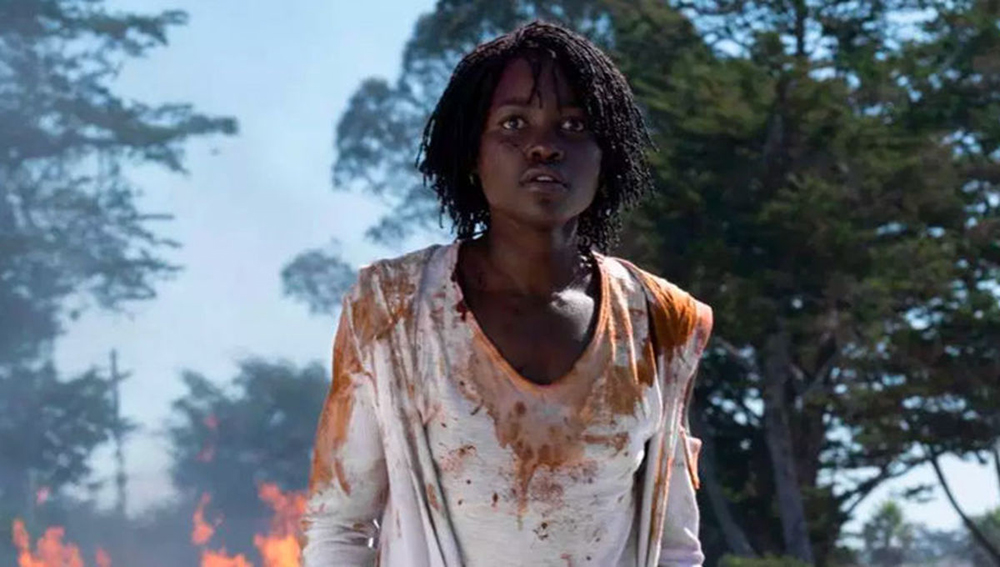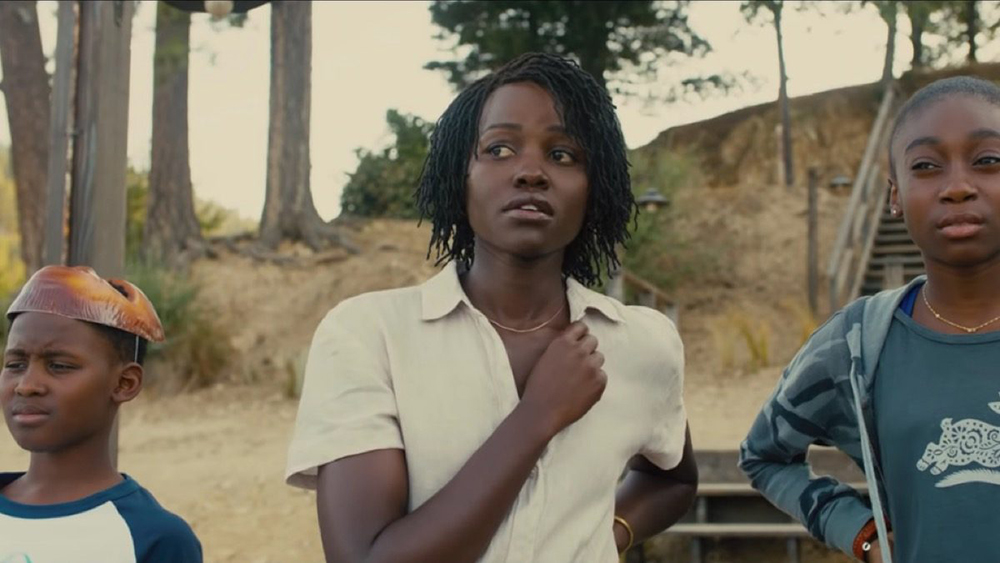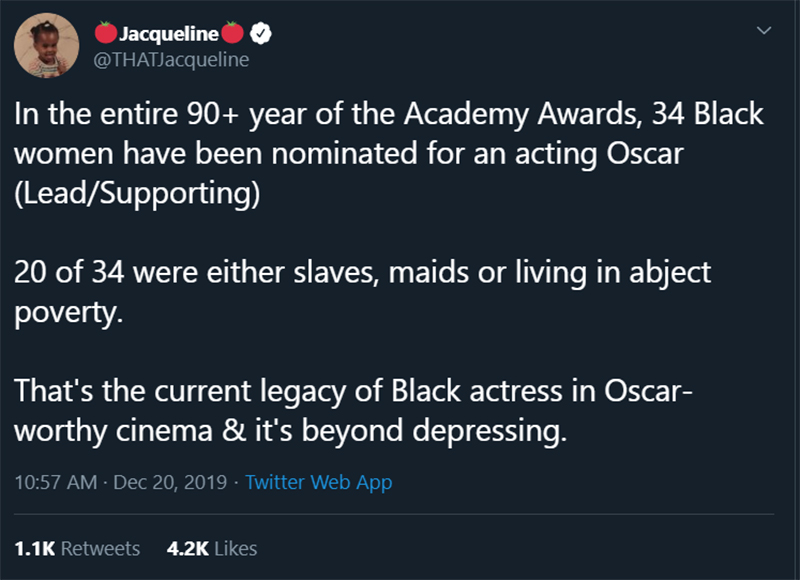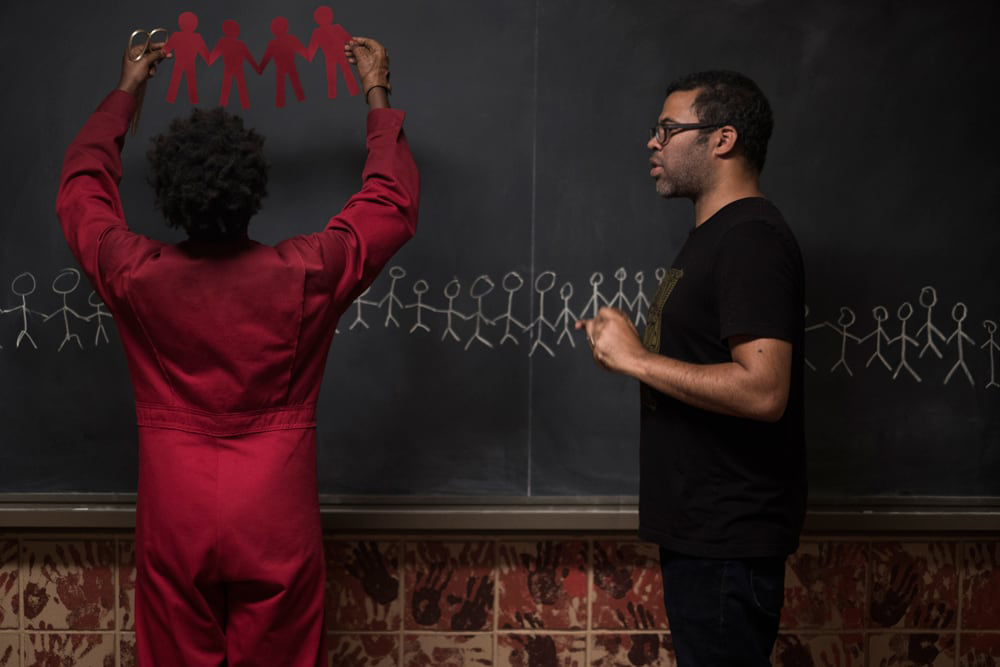Lupita Nyong’o deserved to be recognized by the Academy for her nuanced and eloquent dual performance in Jordan Peele’s “Us”.
Not only is Lupita’s role important to horror in general but it is also a landmark performance for Black women and the Black horror canon as well.
In 2019, Lupita Nyong’o cemented herself as a beloved figure in the horror community. The actress starred in two well-loved and lauded films, Us and Little Monsters. The former was getting serious Oscar buzz upon its release for both Nyong’o and writer/director Jordan Peele. Many hoped that Nyong’o would become a frontrunner for Best Actress in a Leading Role, but those hopes were dashed come January 2020 when Nyong’o’s name was nowhere to be found among the nominees.
It’s easy to brush it off seeing that horror has never gotten its due from the Academy and likely never will. Horror has always been the outsider genre, picking and pushing at pressure points and issues that the general public might not be comfortable with. With that outsider status, there is a sense of freedom to create.
But there is also the bitterness of watching groundbreaking creatives, especially those that are minorities, get passed over for more palatable and traditional Oscar fair.
For a moment, there was hope that the Oscars might have wised up when they took note of Get Out and The Shape of Water, but we were all just getting our hopes up for a major let down. Nothing’s changed, and that is to the detriment of minority creators.
Nyong’o’s performance in Us is vital to horror, yes, but it has an even bigger role.
It gives representation to Black women in horror and in film as a whole. She is nothing short of sublime in the roles of Adelaide and her doppelganger Red. There is care and there in love on Nyong’o’s part when it comes to the crafting of these two women, who serve as two sides of the same coin. They are fundamentally the same, but they are extremely different.
Nyong’o finds a way to both differentiate and embody Red and Adelaide in ways that are nothing short of truly captivating. She accomplishes one of acting’s greatest feats by not playing Red and Adelaide but by becoming them. In the space of two hours, Nyong’o completely transforms into introverted former dancer and loving wife and mother Adelaide, as well as Adelaide’s long suffering shadow Red with her haunting pain-filled stare and voice rusty from disuse.
It’s one thing to differentiate one character from another between different projects. That in and of itself is an impressive challenge for many actors, but imagine doing that in the same film. It’s not something that is often achieved, but Lupita Nyong’o gives both roles her absolute all. In the end, she creates something that is akin to divinity.
She transcended herself in order to give two compelling performances that are tied to one another in fraught and interesting ways.
Nyong’o already has one Oscar, a supporting actress award for her work in 12 Years a Slave. The Academy has a history of nominating Black performers for roles that are directly tied to slavery narratives in film. Rotten Tomatoes editor Jacqueline Coley pointed out a disheartening truth about Black actors and the Oscars in a tweet. Coley writes:
“In the entire 90+ year of the Academy Awards, 34 Black women have been nominated for an acting Oscar (Lead/Supporting). 20 of 34 were either slaves, maids or living in abject poverty. That’s the current legacy of Black actress in Oscar-worthy cinema & it’s beyond depressing.”
Had Nyong’o been nominated for portraying Adelaide and Red, it would have been a momentous occasion for Black women in film.
Peele positions Adelaide as a former dancer, a loving wife and mother, and a resourceful survivor. She exists outside of the narratives of slavery, working as a maid, and poverty. On the other hand he frames Red as a brilliant radical, who seeks more from life and wants to break free from the role in life that had been unfairly thrust upon her.
He allows Adelaide, and by extension Red, to just be. And in doing so he has done something radical and outside of the norm for film. Peele uses horror to help facilitate a role for an extremely talented and vital Black woman outside of the Oscar favorite slave story that she had previously been known for.
Black women deserve to be able to see themselves on screen and see themselves accurately represented at award shows.
Black women’s stories are not limited to the slave, maid, and poverty. Adelaide and Red in Us is a wonderful example of not only ambitious and electrifying acting and talent on the part of Nyong’o, but also a role created for a Black woman that exists outside the Oscar-nominated norm.
It’s time that we as a whole give Black actresses the respect and recognition that they are long overdue for. Nyong’o should to be able to bask in all the glory of her successes while she is still alive to receive the praise. Too often Black women do not get the praise that they’ve rightfully owned while they’re alive.
Lupita Nyong’o without a doubt deserved to be among the 2020 Academy Award nominees for best actress in a leading role for her subversive and daring part in Jordan Peele’s Us. Her dual role as Red and Adelaide with all certainty will go down in horror and film history as essential and iconic.
Nyong’o’s hard work might have gone unrecognized by the Academy, but as a whole we can do our part to give her the appreciation that she has merited for her brilliant work.















Follow Us!